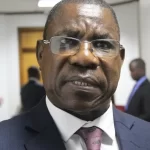
Are Commission of Enquiries a Waste of Resource in Malawi?

The first Commission of Inquiry which Bakili Muluzi instituted led by Supreme Court Judge, Michael Mtegha was the one which was aimed at investigating the circumstances that led to the alleged accident of 1983 known as Mwanza Case in which Four cabinet Ministers and a member of Parliament died mysteriously, Twaibu Sangala, Dick Matenje,Auron Gadama and David Chiwanga.
The case gathered voluminous evidence and traced many witnesses that pointed to the triumvirate which consisted of John Tembo, Kamuzu Banda and Mama Cecilia Tamanda Kadzamila, as having had a hand in the deaths. According to the report, details of the court case also alleged that the operation to eliminate the Four was led by the head of the Special Branch of Police, Macpherson Itimu and that the head of the killing squad was Aaron Mlaviwa and were assisted by a special duties squad of policemen, Leston Likaomba and Macdonald Kalemba.
At the very bottom line was Inspector General of Police, Macmillan Kamwana giving final orders. Despite of these details, the deaths of the Four remained a mystery to the extent that the suspects were acquitted after a prolonged arrest and were depicted as not having a hand in the killing. The second enquiry was that of musician cum Matafale, after getting pressure from the international community, Dr Bakili Muluzi ordered an inquiry which released that Matafale dies of Tuberculosis, in the end what or who killed Matafale remains unknown except Allah and these people will answer one day.
With the above failed enquiries It is not surprising that the police is not forthcoming in giving out crucial information to the ministry of justice to enable it hire foreign investigators to probe the death of The Polytechnic student Robert Chasowa in 2011. The findings of Chasowa Commission of Inquiry led by Justice Andrew Nyirenda, appointed by former president Joyce Banda, clearly fingered the police as being complicity in the murder of the student.
The Police initially lied to the nation that Chasowa had committed suicide when the autopsy and the commission of enquiry established that he was murdered. The police is very unprofessional when it comes to giving out information in which their members are culprits. There so many examples that could be given, but that requires a separate article. In Malawi, experience has shown that where politicians or those close to politicians use the police to eliminate government critics the police will conceal the truth. Does anyone wonder why the police is not doing anything about the murder of Anti Corruption Bureau (ACB) director of corporate affairs Issa Njauju in 2015? Three years down the line Malawians are being told different stories until that case is finally closed.
Similar reasons will be given to Malawians that no one murdered Issa Njauju. May Allah have mercy on him and the rest of the people who dies like his death. As we projected that some individuals are indeed above the law, it is not surprising that after the commission of enquiry on the maize scam had submitted its findings, still government is dragging prosecution.
Although we have seen the firing of Minister of Agriculture and food security Dr George Chaponda and the recent suspension of Admarc Cheif Executive Officer Forster Mulumbe and one of his Directors in the same Office Feckson kantonga respectively. We therefore ask whether these commission of enquiries are not a waste of resources which Malawians would have benefitted more than paying for allowances to people that will report on something which will not work at all.





























